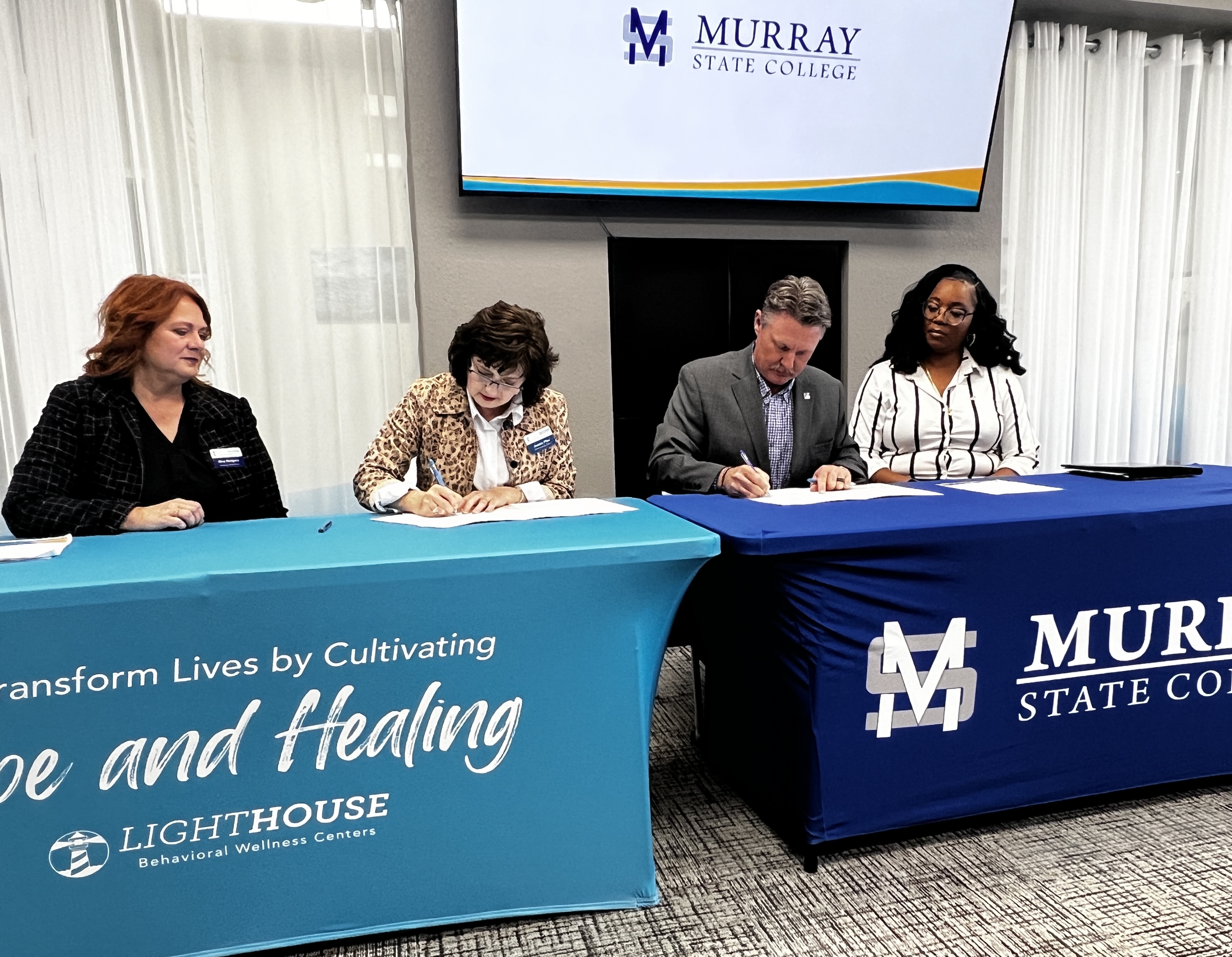Murray State College and Lighthouse Behavioral Wellness Centers have formed a new partnership aimed at developing and strengthening Oklahoma’s behavioral health workforce. This innovative learning pathway will connect classroom instruction with real-world experience, better preparing students for immediate employment and long-term success in behavioral health careers.
Through the agreement, Murray State College will implement a three-course Case Management Curriculum with three semesters of internship, provided by Lighthouse. Under the supervision of a Lighthouse Mental Health Professional, students will gain experience in areas such as assessments, care coordination, client advocacy and crisis intervention.
“This collaborative effort represents a shared commitment to building a knowledgeable, compassionate behavioral health workforce for southern Oklahoma,” said Jessica Pfau, Lighthouse CEO. “By combining quality education with meaningful field experience, we’re giving students the tools and confidence to make a real impact in our communities.”
The newly developed curriculum integrates theoretical knowledge with practical application. Students will not only fulfill academic requirements but also acquire hands-on skills that meet industry standards, like a Case Manager II certification.
"Case management, to me, is a lifeline," said Teihera Beo, Murray State College student. "It's the bridge between despair and possibility. And it's because of Murray State's new Case Management option that students will now be able to pursue a degree in helping others find their worth."
The joint initiative supports the broader goal of improving access to quality behavioral health care across Oklahoma by developing a pipeline of well-trained, locally rooted professionals.
“This collaboration highlights what can be achieved when education and community partners work together for a common goal," said Dr. Tim Faltyn, Murray State College President. “We are proud to partner with Lighthouse to help expand behavioral health education, leading to more qualified professionals, stronger support networks, and healthier communities."

